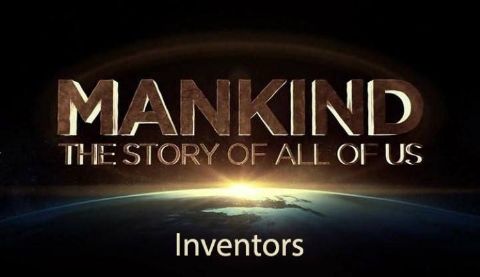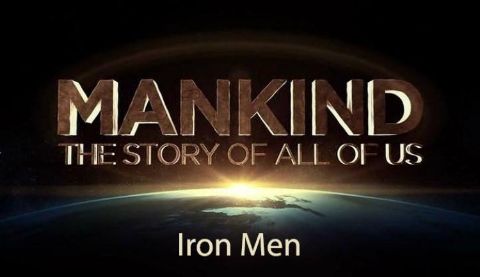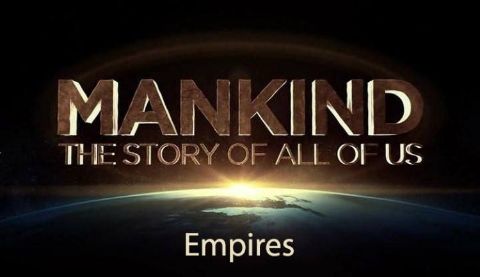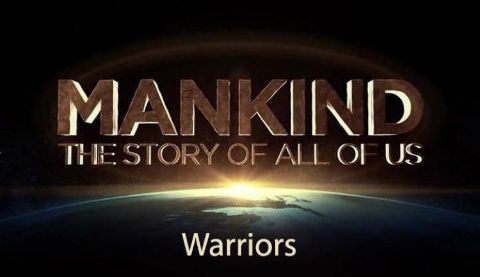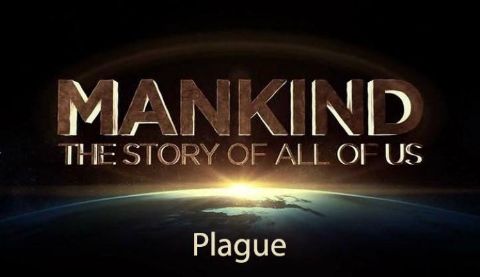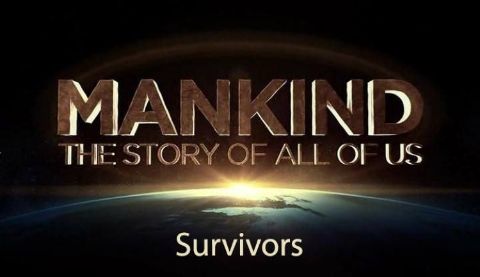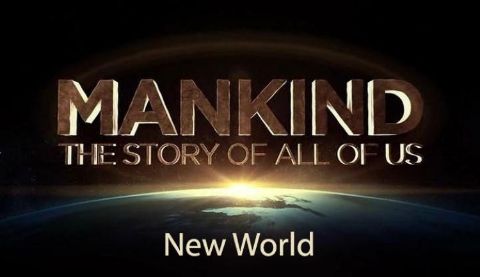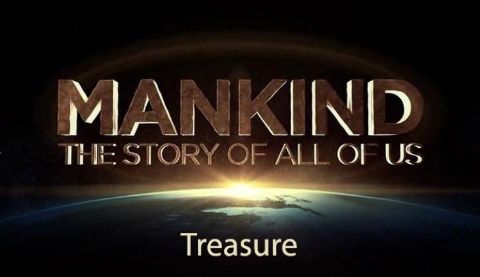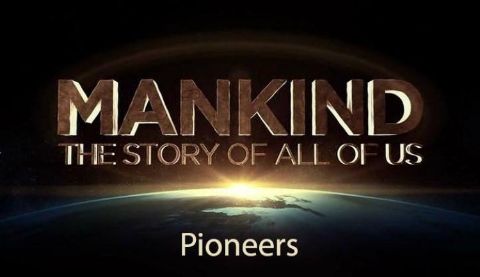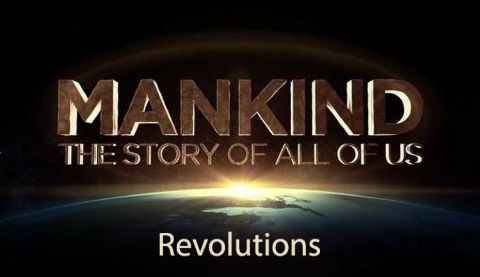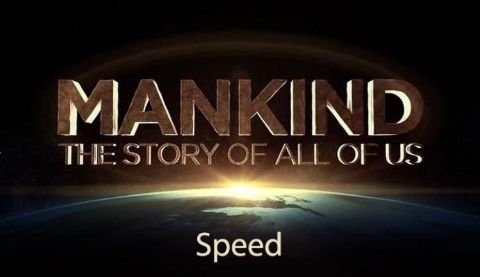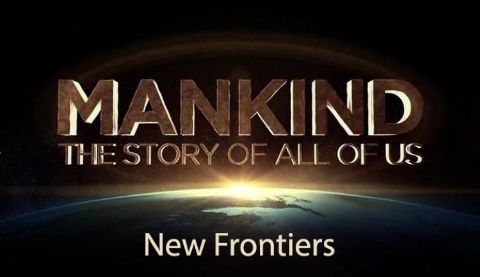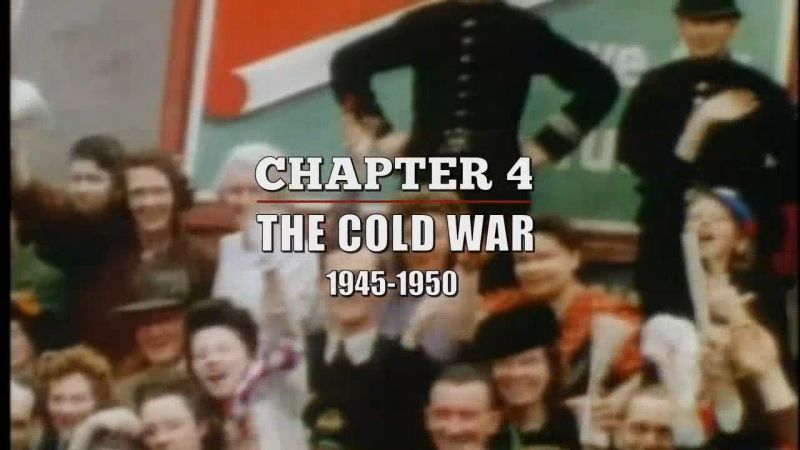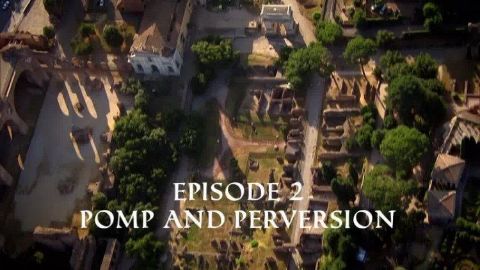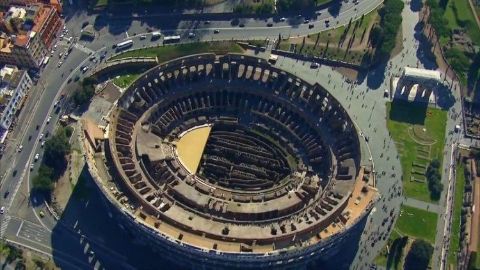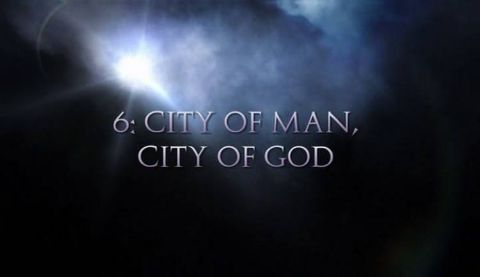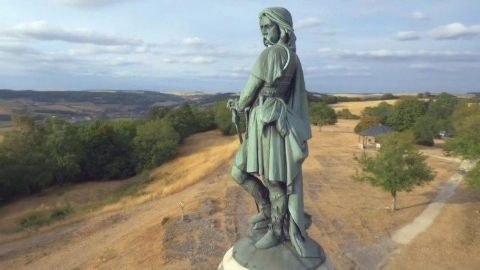Mankind: The Story of All of Us • 2012 • 12 episodes •
On a unique planet, a unique species takes its first steps: Mankind begins. But it’s a world full of danger. Threatened by extinction, we innovate to survive – discovering fire and farming; building cities and pyramids; inventing trade – and mastering the art of war. From humble beginnings, we become the dominant creature on the planet. Now the future belongs to us…
2012 • History
A mysterious band of pirates plunders the Mediterranean coast – leaving destruction in its wake. Empires fall, but out of the chaos, we discover iron. Armed with this wonder metal, ordinary folk can overthrow tyrants and build a new world order. From the birth of democracy in Athens, to the creation of the Bible in Babylon – people power reshapes Mankind.
2012 • History
In the city of Jerusalem, a man is crucified - Jesus of Nazareth. His death gives birth to a global religion. But Christianity may never have happened without the Roman Empire. A vast network of roads and shipping lanes, it allows goods and ideas to flow across three continents. Jesus’ message transforms Mankind. Today one in three people on the planet are Christians.
2012 • History
When Rome is sacked by barbarians, Europe enters a Dark Age. But from the fringes of the old empire, two new forces remake the world. The Arabs, funded by a gold rush, unite under the banner of Islam. The Vikings rejuvenate the cities of Europe, travel to America and become Christian knights. The stage is set for a clash of civilisations - the Crusades.
2012 • History
Genghis Khan--the bloodiest warlord in history--sweeps south from Mongolia into China and creates a mighty empire. He leaves 40 million dead bodies in his wake. But a greater killer stalks Mankind--the Plague. Traveling along Mongol trade routes, the disease wreaks havoc in Asia and Europe--the greatest biological disaster in history. But the Americas are unaffected. Here, civilizations flourish in isolation.
2012 • History
Gold from Africa kick-starts the rebirth of Europe. Money flows into Venice – creating new opportunities for entrepreneurs willing to take risks. In China, a new weapon – the gun – allows a peasant uprising to unify the country. Chinese innovations inspire Europe – leading to the printing press. Millions of books are printed. One of them will inspire a journey to the New World. America beckons.
2012 • History
The Aztecs have built a mighty empire that dominates Central America. But it will be destroyed because of a domino effect. 7,000 miles away in modern-day Turkey, the great trading centre of Constantinople is overrun by an Islamic army. Europeans race to find a new route to the spice-rich East. Instead, Christopher Columbus lands in America – and discovers gold. Within 30 years the Aztecs will be conquered.
2012 • History
In the Andes, the Spanish open up the largest silver mine in the world – and mint millions of pesos de ocho (pieces of eight). These coins transform the global economy. They fill the treasure chests of pirates. They fuel a stock market boom. They help pay for the Taj Mahal. As trade booms, millions of people come to the New World as slaves. But a handful of Pilgrims come as pioneers – looking for freedom.
2012 • History
Mankind embarks on a new age of exploration, and tames the wilderness. In North America, Siberia and Australia, ancient traditions are swept away in the name of commerce and science. Within a hundred years, the irrational fear that produced a witch trial in Salem gives way to a very rational cry for freedom. American revolutionaries confront a mighty empire. The battle for the modern world begins.
2012 • History
Two great revolutions entwine. The American Revolution inspires dreams of political and personal liberty. The Industrial Revolution replaces muscle power with machines, freeing Mankind from nature’s limits. But our oldest foe – disease – thrives in industrial cities. With the American Civil War, the two revolutions collide. The world’s first industrial war, it is a battle to define ‘freedom’.
2012 • History
The end of the American Civil War allows Mankind to go into overdrive. This is an age of innovation, transformation and mass production. People believe that ‘Anything, everything, is possible.’ Japan goes from feudal society to industrial superpower within 50 years. But progress has its dark side. The demand for rubber devastates Africa. And the desire to build bigger, faster, better leads to a titanic disaster…
2012 • History
Mankind takes on godlike powers: to feed billions of people, reshape the landscape, re-engineer the human body. The greatest power of all was unleashed over Hiroshima on 6 August 1945. Since entering the Atomic Age we’ve been living between eternity and oblivion. But at the same time, we’ve become more connected as a species. 100,000 years ago there were a few thousand hunter-gatherers on the African savannah. Today there are 7 billion of us in every corner of the globe. It’s been an amazing journey.
2012 • History
